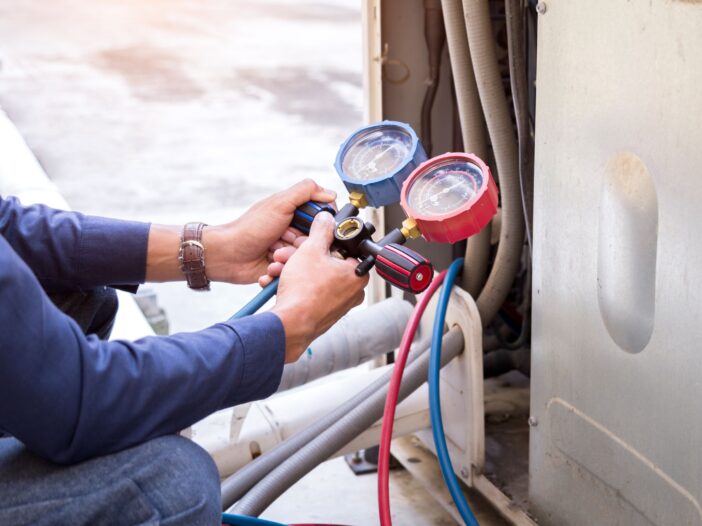
An air conditioning unit is a major investment in your home’s comfort and value. Knowing how long you can expect your air conditioner to last can help you plan for maintenance, repair, and eventually replacement when the time comes. Although the lifespan of an air conditioning unit can vary, understanding what factors affect its longevity can help you get the most out of your system and keep it running efficiently. In this post, we’ll take a closer look at how long air conditioners last, signs that your system may be nearing the end of its life, and how M&S Heating and Air Conditioning in Sparks, NV, can help you maximize your unit’s lifespan.
Average Lifespan of an Air Conditioner
On average, a well-maintained air conditioner can last between 10 to 15 years. However, several factors influence its longevity, such as the type of unit, frequency of use, and climate conditions in your area. Here’s a breakdown of average lifespans based on the type of air conditioning systems:
- Central Air Conditioners: 12 to 15 years
- Ductless Mini-Split Systems: 15 to 20 years
- Window Units: 8 to 10 years
- Portable Units: 5 to 10 years
The above timeframes are based on proper maintenance. Regular maintenance, prompt repairs, and professional installations can extend the lifespan of your air conditioning system. In Sparks, NV, where summers are hot and dry, having a reliable AC system is crucial, making it even more important to take good care of your unit.
Factors That Affect an Air Conditioner’s Lifespan
While the average lifespan of an AC unit provides a general guideline, various factors can impact how long your specific unit lasts.
- Maintenance: Regular maintenance is key to prolonging the life of your air conditioner. Tasks such as cleaning or replacing air filters, inspecting coils, and checking refrigerant levels are essential for efficient operation. A well-maintained unit encounters fewer breakdowns and runs more smoothly, which helps reduce wear and tear on its components.
- Frequency of Use: Air conditioners in areas with long, hot summers often have shorter lifespans due to the increased workload. In Sparks, NV, where AC systems are likely to run for extended periods, increased usage can lead to faster wear. Homeowners who rely on their units heavily may need to consider more frequent maintenance to extend their AC’s life.
- Installation Quality: A professional, high-quality installation is essential for an AC unit’s efficiency and longevity. Poorly installed units often struggle to perform optimally and can face early breakdowns. M&S Heating and Air Conditioning ensures your unit is properly installed, helping it function smoothly for years.
- Size and Capacity: An improperly sized AC unit—either too big or too small for your home—will not only struggle to maintain your desired temperature but will also experience greater wear. An overpowered unit will cycle on and off too frequently, while an undersized unit will constantly run, putting unnecessary strain on the components. An HVAC professional can help you choose the correct size for your home.
- Environmental Conditions: The climate in Sparks, NV, can have a significant impact on your air conditioner’s performance. Units exposed to extreme heat, dust, and dry air often need additional care. Keeping your outdoor unit clear of debris and checking for signs of dust accumulation can help reduce the strain caused by the local environment.
Signs Your Air Conditioner May Be Nearing the End of Its Lifespan
As air conditioning units age, they start showing signs of declining performance. Here are some indicators that your unit may be nearing the end of its useful life:
- Increased Energy Bills: Older units often lose efficiency and need to work harder to maintain a comfortable temperature, leading to higher energy bills.
- Frequent Repairs: If your unit requires frequent repairs, it may be more cost-effective to replace it rather than continue to pay for repairs. When repair costs start approaching half the cost of a new system, replacement is often the wiser choice.
- Poor Airflow and Uneven Cooling: An air conditioner that struggles to cool your home evenly or fails to maintain a consistent temperature is often a sign of an aging system. Poor airflow may indicate issues within the ductwork, but in older units, it can also signal wear on the fan, motor, or compressor.
- Strange Noises or Smells: Unusual sounds like grinding, rattling, or squealing, as well as foul odors, are signs that your air conditioner may be reaching the end of its life. These issues often indicate failing internal components, which can be costly to replace.
- R-22 Refrigerant: If your unit still uses R-22 refrigerant, it may be time for an upgrade. R-22, or Freon, has been phased out due to environmental concerns, and servicing units with this refrigerant is becoming increasingly expensive. Newer systems use more eco-friendly refrigerants that are also more efficient.
Tips to Extend Your Air Conditioner’s Lifespan
Taking good care of your air conditioner can help you get the most out of it. Here are some tips to extend your system’s life:
- Schedule Regular Maintenance: Have your AC unit serviced at least once a year to catch potential issues early.
- Change or Clean Filters: Regularly clean or replace your air filters to improve airflow and prevent strain on your system.
- Keep the Outdoor Unit Clean: Clear any debris, leaves, or dirt from around your outdoor unit to ensure proper airflow.
- Install a Programmable Thermostat: A programmable thermostat can help reduce unnecessary cooling and ease the strain on your unit.
When It’s Time for a Replacement, M&S Heating and Air Conditioning is Here to Help
Even with the best care, every air conditioner will eventually need to be replaced. If your unit is over 15 years old, or if you’ve noticed a decline in performance and rising energy costs, it may be time to invest in a new, energy-efficient system. The team at M&S Heating and Air Conditioning in Sparks, NV, can help you find the right replacement and provide professional installation services to maximize your new system’s lifespan.
By understanding the factors that impact your air conditioner’s life expectancy and watching for signs of wear, you can make informed decisions to keep your home cool and comfortable. Contact M&S Heating and Air Conditioning today to learn more about extending your AC’s lifespan or finding the perfect replacement unit.

